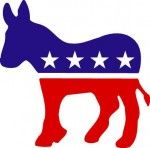What’s Left: Sacrifice for Safety

In the wake of the attempted assassination of Gabrielle Giffords in Tucson, Arizona in early January, much has been made of the level of vitriol in our political discussion and debate. Many point to Sarah Palin’s “Take Back the 20” map, in which she affixed crosshairs on Democratic congressional districts — including Giffords’ — that she perceived as vulnerable to Republican challengers as characteristic of this trend. Furthermore, many purport that the mental health of the shooter, Jared Lee Loughner made him more susceptible to violence and violent rhetoric. However, to suggest that vitriol in politics and the violence of a mentally-ill man are causally or even correlatively connected is mere speculation. We must recognize that this shooting is only a tragic reminder of the reality of violence in politics. The disappointing amount of violent language in our civic discourse is worth correcting under its own merit — we should not lump it together with the random acts of violence of a mentally-ill individual.
The biography of Jared Lee Loughner has all the hallmarks of a mental disease. A normal child who underwent a dramatic personality change in high school, Loughner became an anti-social loner who rarely interacted with the outside world. Classmates remembered Loughner shouting nonsensical things in his Pima County Community College classes, and school administrators expelled him, telling Loughner that he needed to obtain a mental health clearance to re-enroll. Youtube videos under his name only deepen his psychotic nature. With strange syllogisms purporting that the government controls grammar structure, a new currency is coming to our world, and that “You don’t have to accept federalist laws,” it is clear that a mental issue was affecting him. However, what isn’t clear is whether any sort of violent rhetoric influenced his violent tendencies.
This theory has perhaps grown out of the stereotype that the mentally ill are prone to violence. In a study published by Duke University, “The Social-Environmental Context of Violent Behavior in Persons Treated for Severe Mental Illness,” researchers concluded that the mentally ill were not statistically more likely to commit violent acts unless they had previously been a victim of violence, had used drugs or lived in violent surroundings. Loughner himself has no known association with any political extremist groups, is a registered independent who didn’t vote in the 2010 midterm elections, and his only issue with Giffords appears to be that at a 2007 campaign event, she did not answer his question suitably. As his high school friend put it, “He did not watch TV, he disliked the news, he didn’t listen to political radio, he didn’t take sides, he wasn’t on the Left, he wasn’t on the Right.”
However, this is not to say that vitriol in politics is completely disconnected from this tragedy. Quite the opposite, we must take this as an inadvertent manifestation of rhetoric becoming reality; a freak accident which serves as a grim reminder of what violent diction is rooted in. Though unrelated, the actions of Jared Lee Loughner nonetheless are a representation of attitude we unconsciously support when we use violent language.
We may forget, but our words are more than just ideas. The tone of our diction, the connotation of our comparisons, even the form of our sentences — all these interact with us on a deeper level than our denotative language. These rhetorical devices help shape the scope through which we see our subject. And recently our political speeches have been layered in a violent pathos. We cannot allow violence to be our scope. When it becomes acceptable to vocalize our political perspective in violent terms, we put those surrounding us in a world where politics is a platform viewed only through violence, making for a very combative and desperate world indeed. Democracy can only exist if we can discuss policy without fear — the marketplace of ideas must be free from the intimidation of violence. Before we shake off the Arizona shootings and get ready to “reload” for the next political season, we must take this disaster as a warning. We must understand that the violent language of public discourse is rooted in a tragic reality, and that continuing to define our civil debate by violence can only prove disastrous for our democracy.








